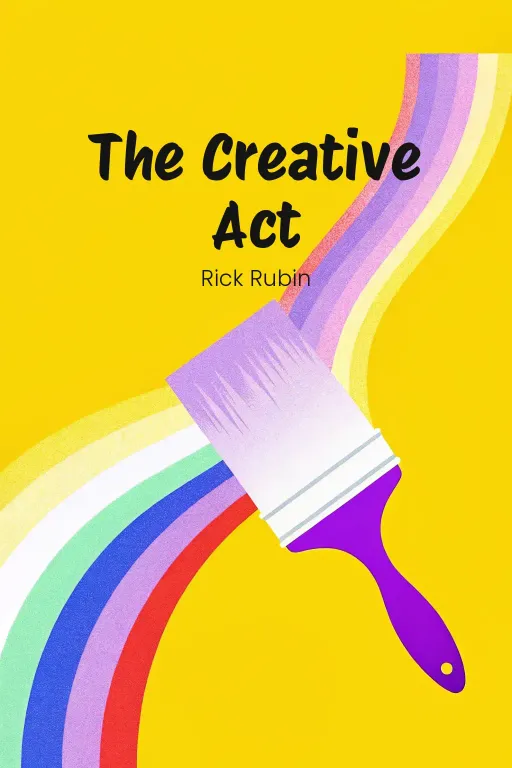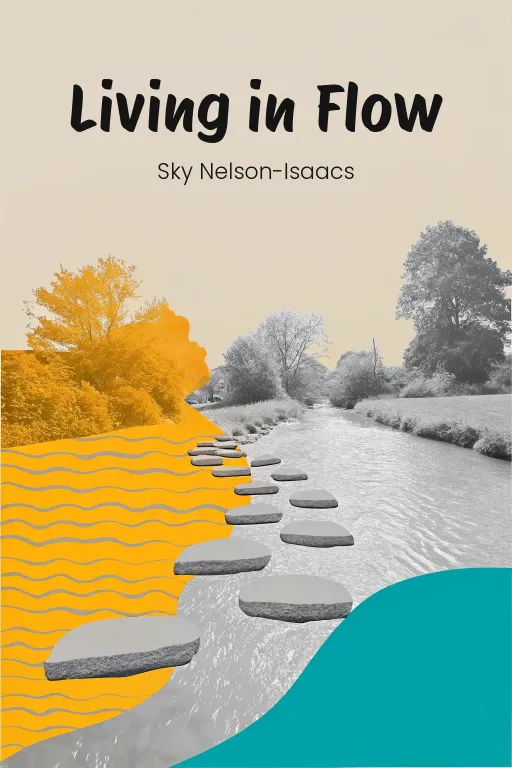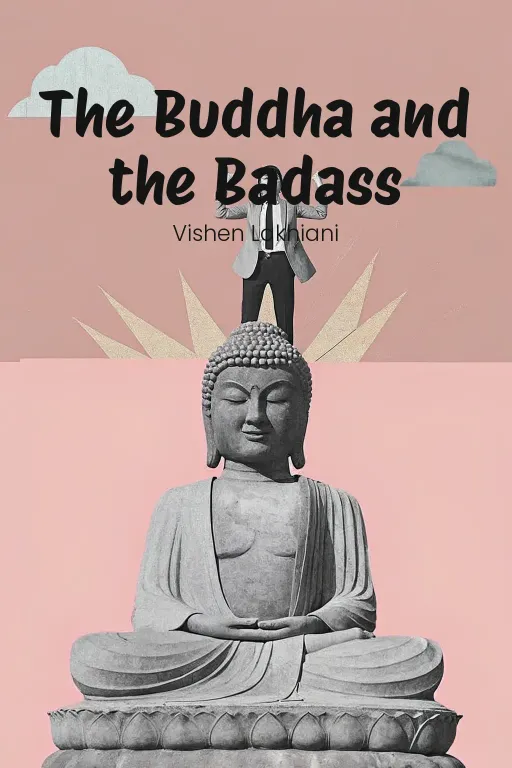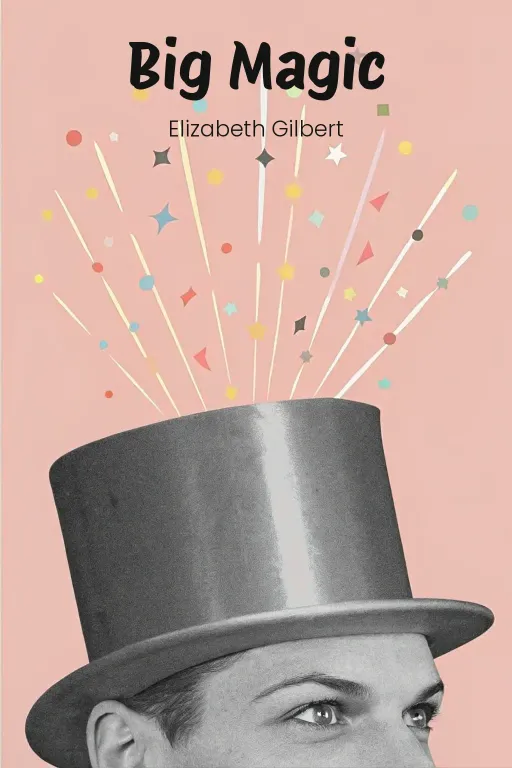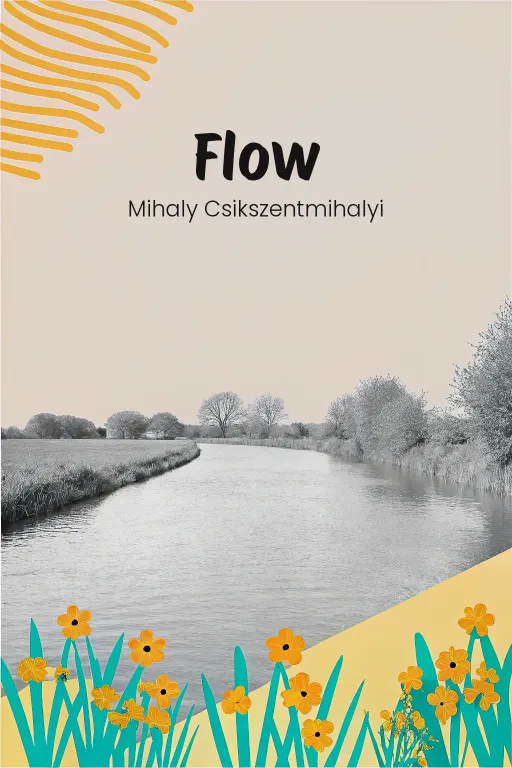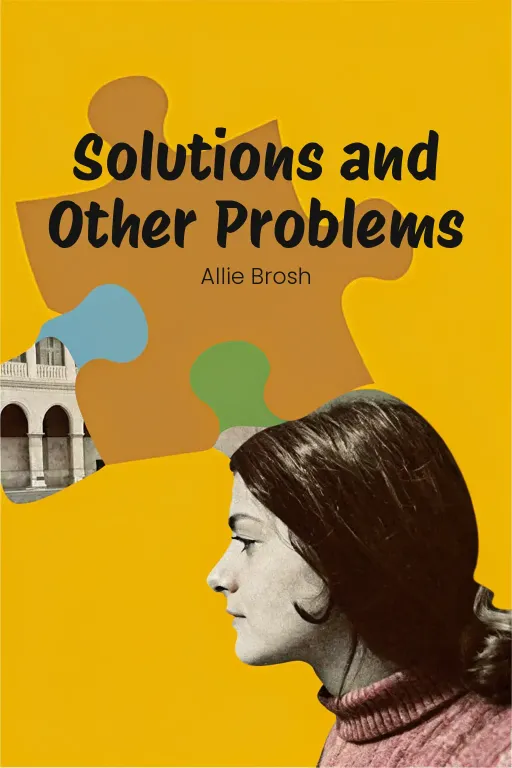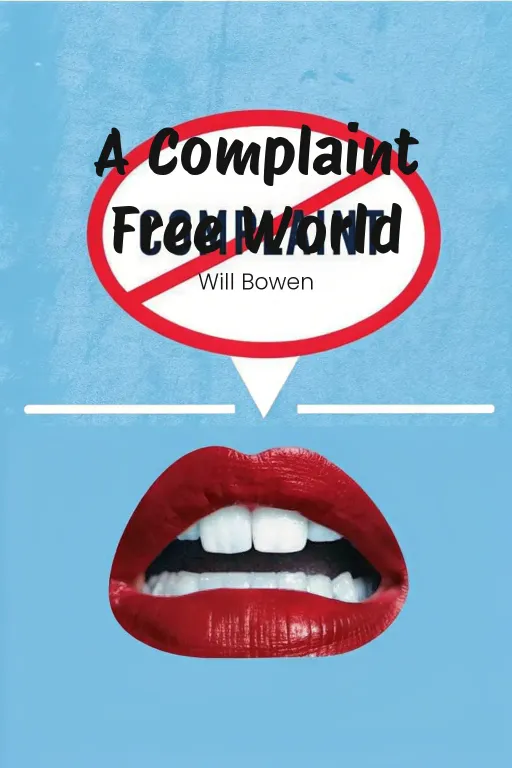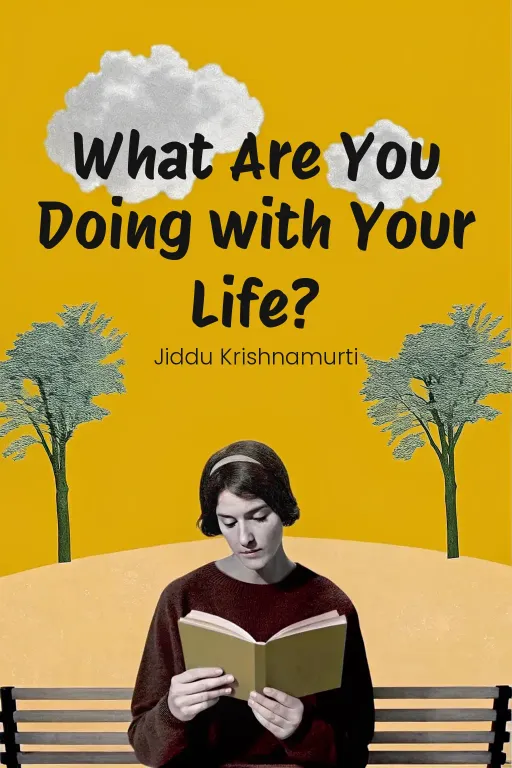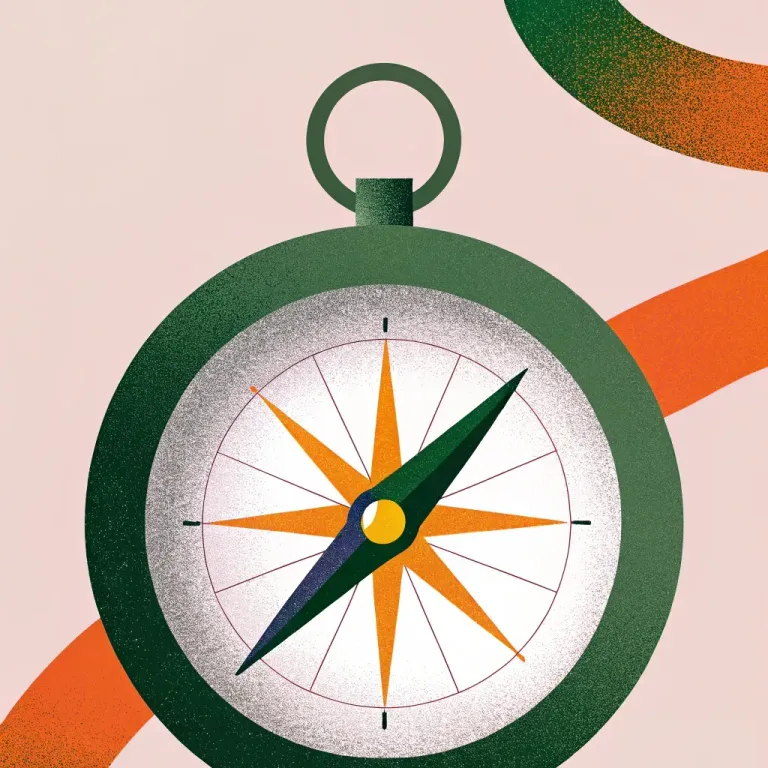
Erase Your Inner Maze: Find Clarity Now
Podcast by Beta You with Alex and Michelle
Explore answers to some of life's most difficult questions
Introduction
Part 1
Alex: Hey everyone, and welcome! Today, we're diving deep into the thought-provoking world of Jiddu Krishnamurti. His ideas “really” push us to pause, look inside, and ask some fundamental questions: Who are we, “really”, beyond all the noise of our thoughts, our fears, and everything society has taught us? Michelle: It's wild, isn't it, Alex? It's kind of unsettling to think about how much of our lives is just... automatic. Like we're running on some pre-programmed software. We're in a maze, and we don't even know how we got there. Alex: Exactly! And that's precisely what Krishnamurti tackles. He gives us a way to step back, take a look at the maze itself, and figure out what's “really” going on. This book highlights how examining our conditioned minds and breaking free from those emotional chains—like fear and dependence—can lead to some pretty profound changes, not just for us individually, but for society as a whole. Michelle: So, we're tackling three big ideas today, right? Alex: Yep. First, we're going to unpack how our minds get shaped—or conditioned—by society, and why understanding that process is the crucial first step. Then, we'll dig into how emotions like fear and our need for security keep us stuck in patterns. And finally, we'll discuss how gaining personal clarity can actually spark wider change, leading to a more connected, more compassionate world. Michelle: Whoa, ambitious agenda! From personal growth all the way to reshaping society? Alright, let's see where Krishnamurti's wisdom takes us, shall we?
Understanding the Mind and Self
Part 2
Alex: Okay, so picking up where we left off, let's connect the dots a little. You were joking about board games and how competitiveness can just take over before you even realize it, right? That actually ties in perfectly with what we’re talking about: understanding the mind and the self. Krishnamurti really challenges us to consider: "Is it truly possible to understand ourselves when our minds are so full of noise? You know, all those thoughts, judgments, and fears, all shaped by society." Michelle: Right, so step one: self-awareness. Learning to actually see the noise instead of just reacting. But when Krishnamurti talks about "understanding," what exactly does he mean? Is it like, surface-level stuff, like "Oh, I'm competitive because of X, Y, and Z," or is he digging for something much deeper? Alex: Oh, definitely deeper. For him, understanding isn't about dissecting yourself or slapping labels on things. It's much more of an experience. He talks about those moments when your mind just quiets down, frees itself from all the chatter. That’s when real understanding happens—not through explanations, more through direct perception. Like seeing clear water when all the mud just settles. Michelle: Okay, but that sounds, um, rather abstract. I mean, how do you even find "stillness" when life is basically one giant, never-ending to-do list? Alex: That's a great question. Let me give you one of his examples. Picture standing in front of a piece of abstract art, okay? Now, if your mind's racing – judging it, breaking down the technique, wondering if it's even "worth it" – you've missed the point. You’ve lost your connection to what’s happening. But if you approach it with an open mind, without all that internal noise, you might suddenly feel the artist's emotion, what they intended. It's not intellectual, more like a flash of insight. Michelle: So, it sounds like understanding is less about figuring things out and more about... letting go of that need to figure things out in the first place. Alex: Exactly! It's almost paradoxical, right? You can't force it. Instead, create the right conditions. Cultivate a garden, and let those insights bloom naturally, you know? And when you see things clearly, without distortion from all your baggage, that’s when things really change. Michelle: Okay, but let’s keep it real. Stillness, quieting the mind. Sounds… pretty much impossible these days. My brain barely shuts off during yoga. Does Krishnamurti realize that most of us can't just, you know, ditch everything and meditate in the Himalayas? Alex: He absolutely does. And he's not suggesting isolation to find stillness. The point is that stillness isn't about escaping the noise, it's about observing it as it happens. He suggests just watching your thoughts without judgment. Not trying to silence them, but letting them unfold, like watching waves on a shore. Michelle: Okay, scenario time. I'm stuck in traffic, super stressed, late for a meeting. What, am I supposed to just "observe" my irritation until enlightenment strikes? Alex: Well, maybe not enlightenment exactly. But yes – observe! Notice the frustration as it rises. How it makes your chest tight, the stories your mind starts telling: "If only I’d left earlier," or "This city is so badly planned!" Just watch it all without trying to push it away or act on it. It’s not about making the stress disappear. It's about seeing it clearly. And often, once we really see a problem, without labeling it "bad" or trying to fix it right away, it starts to resolve itself Michelle: So, instead of turning into a road rage monster, I become, like, a traffic Zen master by…doing nothing? Alex: More or less, yeah. But this “doing nothing” takes practice. It's really about breaking those automatic responses, the conditioned behaviors we don't even know we're repeating. Michelle: Which brings us to the big topic of how societal conditioning shapes all that auto-pilot behavior, right? I mean, is it even possible to tell where "I" end and where everything society's shoved into me begins? Alex: Precisely. Krishnamurti argues that society – parents, schools, cultures – just layers us with expectations and beliefs until we think they're our own. Take ambition, for example. Most of us grow up thinking success equals validation: good grades, promotions, awards. But have we ever actually stopped to ask, why do I even want these things? Is it real passion? Or fear of being judged or left behind? Michelle: And the answer is probably, "Because everyone else is doing it, and I don’t want to be the odd one out." Alex: Bingo. He'd call that "ignorance." Not as an insult, but in the sense of just not questioning things we’ve always accepted. Let's take competition. Society glorifies it as essential, but he’d say it creates division, not connection. When we're always comparing jobs, cars, and houses we lose sight of the deeper connections. Michelle: Alright, devil’s advocate here. Isn’t a little competition healthy? Doesn't it push us to innovate? If no one cared about being "the best," wouldn’t we just stagnate? Alex: It's not about rejecting effort or growth. He's challenging the motivation behind it. If our drive comes from fear – fear of failure, fear of being seen as "less" – then even success won't fix that. The fear just finds a new target. He suggests shifting to cooperation instead of comparison. Imagine kids collaborating to solve problems, instead of competing for top grades. Creating something meaningful together can be way more powerful. Michelle: You mean, if society stopped measuring people against each other, we'd all stop buying fancy stuff and just… plant community gardens instead? Alex: Maybe! Seriously, though, freeing ourselves from comparison doesn’t mean losing ambition, just redirecting it toward real, shared progress instead of one-upmanship. Michelle: So, it all comes back to awareness, huh? If I understand why I want something – and it's not just because society or Instagram tells me to – I can actually choose whether to pursue it. Alex: Exactly. Seeing through societal conditioning gives you back your power. Once you step off that treadmill of fear and comparison, you can approach life with more honesty and freedom. Michelle: Honesty, freedom, stillness – sounds great. But also... a lot to unpack.
Fear, Dependency, and Emotional Liberation
Part 3
Alex: So, when we really understand our minds and how we’ve been conditioned, we naturally start to confront the things holding us back . Which brings us to today’s theme: fear, dependency, and emotional liberation . We're going to identify these obstacles, explore where they come from, and discuss how to overcome them . Michelle: Okay, fear, dependency, emotional liberation... each one of those is a huge topic . Let me guess, are we starting with fear? Alex: Yes, exactly . Fear really is one of the biggest blocks to personal freedom . Krishnamurti talks about fear as a psychological construct, not just a reaction to danger . It's deeply connected to our conditioning . Michelle: Right, like how fear of failure stops us from even trying, right? It's not the failure itself we're scared of, it's what we “think” it says about us . About our worth or competence, as if one mistake means "I'm a total loser." Alex: Exactly! So, let's say a young professional is about to pitch an idea to some investors—intimidating, right? But the actual event, standing there, isn't inherently terrifying . It's made terrifying by the belief, "If I fail, I'm worthless . I'll never recover." And that belief didn’t just pop up; it was planted and nurtured where mistakes were judged harshly, not seen as growth opportunities . Michelle: So it's not the pitch that's the problem, it's the years of conditioning screaming, "Don't screw up!" I get it . But how does someone actually untangle that kind of conditioning, you know? Knowing why you're afraid doesn't magically make the fear go away . Alex: Good point . Krishnamurti suggests that the key isn't fighting the fear or overanalyzing it . It's observing it, really sitting with it . Like noticing the fear rising in your chest, acknowledging it without resistance or judgment . He likens it to watching a cloud pass—you see it for what it is, without getting attached . Michelle: So, you see the fear, but you don't focus on it . Instead of thinking, "This fear defines me," it's more like, "Oh, there's that feeling again." It just… is . Alex: Exactly . And through that process, you detach from the fear . It doesn't have the same hold on you . Over time, that detachment frees you . You stop making choices based on fear and start acting from clarity, even courage . Michelle: Right, but what if I start spiraling when "observing" my fear? Like, I start thinking, "Why am I like this? I need to fix myself!" Does that ruin the whole thing? Alex: That's a common trap . Krishnamurti would say reacting to your emotions, even wanting to "fix it," just feeds the ego . You have to learn to watch without judgment . Fear grows when you resist it or over-identify with it . Simply recognizing it as a conditioned response weakens its influence . It’s almost as if the energy of attention, deflates the emotion’s intensity . Michelle: Okay, so fear, understood and observed, becomes less powerful . But fear's not usually alone, it brings friends—like anger, let’s say . Should we dive into that one? Alex: Yes, we should . Anger, as Krishnamurti sees it, often comes from unmet expectations or ego-driven narratives . It flares up when our sense of self-importance or entitlements are challenged . Michelle: So, what? Someone cuts me off in traffic, and I get angry because I, the great Michelle, deserve a smooth commute? That's... surprisingly accurate . Alex: You're not far off! A common example: you're angry because a friend forgot your birthday . The anger isn't just about the date; it's rooted in the expectation, "They must remember this to prove they value our friendship." When that's disrupted, the ego feels slighted, and anger jumps in to defend it . Michelle: Okay, let’s talk psychological self-defense, then . How do I stop anger turning a simple mistake into a melodramatic "You don't care about me at all!" outburst? Alex: First, Krishnamurti would say, ask yourself: What expectation fueled this anger? Why did I need this particular attention or validation? When you observe the expectation, you see how it's tied to desires for recognition, fairness, or control . And, like fear, anger fades when you acknowledge its roots without judgment . Instead of escalating the situation, you approach it with understanding . Michelle: So, if I separate my need to feel valued from the actual event, then it's not about the missed birthday anymore . It’s about why I'm feeling so insecure in the first place . Alex: Exactly! When you shift that dynamic, anger softens into an opportunity for connection, not division . You might reach out to your friend with curiosity instead of blame . "Hey, is everything okay? I noticed you forgot." It opens the door for understanding, rather than a major fight . Michelle: Okay, anger and fear – two sides of the same coin . One's about perceived loss, the other about defending what you think you own . On the broader emotional spectrum, where does dependency fit? Isn’t it natural to be dependent on others in relationships, or in life? Alex: It is a natural impulse, but Krishnamurti critiques psychological dependency when it's used to fill an inner emptiness . Someone overly dependent on their partner, clings not out of love, but out of fear, fear of feeling lost, insecure, aimless without the relationship . Michelle: So, instead of dealing with their own issues of self-worth, their identity becomes “us” . And suddenly, any disagreement or breakup feels catastrophic . Alex: Exactly . Dependency masks unresolved insecurities . It’s like using a crutch for an injury you refuse to heal . Krishnamurti encourages people to look inward, to ask "Why am I so scared of being alone? What fuels this need for external validation?" By facing deeper fears and cultivating self-sufficiency, they can love freely, without control . Michelle: Okay, so it’s not about rejecting relationships, but entering them as a whole person, not as half a person looking for their other half . Alex: Precisely! Think of redirecting energy inward, cultivating hobbies, self-reflection, self-discovery, until you no longer rely on someone else to feel complete . When dependency fades, relationships transform . They’re built on mutual respect instead of quiet desperation . Michelle: Okay, we’ve got fear holding us back, anger defending our ego, and dependency covering up our insecurities . It’s all pretty interconnected, isn’t it? Alex: Yes, spot on . Each of these emotions feeds into the others, creating patterns of inner conflict and resistance . But Krishnamurti’s solution is always the same: quiet observation . Becoming aware helps you dissolve those emotional chains, one link at a time .
Societal Transformation through Personal Change
Part 4
Alex: So, by freeing ourselves from emotional constraints, we can look at how these changes affect our broader choices in life, like, you know, our jobs and relationships. And that brings us to today's main thing: how personal change can lead to societal transformation. The order here really matters - we start with what's going on inside each person, then see how that plays out in society, and, finally, imagine what a harmonious society could look like. Michelle: Okay, so first, we untangle our inner mess – our fears, angers, dependencies, all that stuff. Then the big question is: if I change, does that actually spread outwards? Can my own transformation really make a difference in these huge social structures we're all stuck in? It sounds a bit idealistic, doesn't it? Alex: Right! Krishnamurti sees society as a mirror of what's going on inside us all. I mean, think about it, society's problems – the conflicts, the inequalities, the power struggles – they don't just appear out of thin air. People create and keep them going by acting out their fears and their conditioned behaviors. So, when people change, they're taking apart the very base of these systems, piece by piece. Michelle: Okay, fair enough, but let's get down to earth here. When we say "personal transformation influencing society," is this just wishful thinking, or does Krishnamurti give us real-world examples of how this happens? Alex: Let's take nationalism, for example. Krishnamurti points out that how obsessed we are with national identity really shows how conditioned we are. People tie so much of who they are to a flag or a border, and that automatically creates an "us versus them" mentality. All those wars, prejudices, and rivalries, they all come from people strongly defending an identity that's been created by society. Michelle: So, wait a minute, next time I see countries fighting, Krishnamurti would say it's not about politics or policy, but... individual egos identifying with their nations? That's... almost too simple. Alex: Well, he's not saying politics aren't involved, but the emotional reason for these conflicts comes from personal identification. When someone says, "This nation is me," they automatically separate themselves from others. The answer comes from each person asking, "Why am I so attached to this? What fear, what insecurity makes me need to think my nation is better?" Michelle: Right, and people probably don't want to ask that, because it feels safer to just stick with their group. If I let go of that identity, I'd feel like I'm floating around with no anchor. Alex: Exactly! But that's also where real change begins – when you realize you can grow beyond these old attachments. Imagine someone valuing humanity as a whole, instead of just their nationality. That change of mind opens doors to understanding and working together across borders. Michelle: Okay, but someone's bound to say, “What if I do stop identifying with my country or culture? How does that solve global problems like war? Won’t the leaders – or the systems – keep causing trouble anyway?” Alex: Good point, but Krishnamurti says systems only keep going when people keep them going. Leaders can only act on the divisions we allow. Imagine if enough people saw that their enemies were just people too, shaped by the same fears and hopes as them. It's much harder to justify wars when people see their so-called "enemy" as more than just a label. Michelle: Okay, fine – so labeling and identifying creates conflict. But again, is this realistic? What about competition? That’s another huge thing in society. Our schools, jobs, even relationships are all set up as competitions. Does Krishnamurti have a problem with pretty much everything competitive? Alex: Pretty much, yes. It's not competition itself he's against, it's what drives it. If competition comes from fear, fear of failing, fear of not being good enough, it just makes insecurity and division worse. Think about how traditional schools work. Students compete for grades, but at what cost? Stress goes way up, working together goes down, and self-worth gets tied to meaningless rankings. Michelle: But aren't we kind of wired for competition? Survival of the fittest, evolution and all that? Isn't that how things get better? Alex: Krishnamurti turns that around. He says that working together – when it comes from curiosity and respect – is just as, if not more, effective for progress. Think about classrooms where students work together to solve problems. Studies show that these setups not only get better results but also build stronger emotional connections. Michelle: Interesting. So, instead of a classroom where everyone is trying to be the best, you'd have... say, a group project where everyone depends on each other's knowledge to succeed. But what's stopping one person from slacking off and letting everyone else do all the work? Alex: Well, accountability is important, of course. But the real point is this: when you see success as contributing to something meaningful, and not just as beating others, the common goal becomes more important than your own ego. That naturally makes you want to do your part. And, you know, the same idea works for society in general. Michelle: Alright, so ditch competition, focus on collaboration. Okay, but let's bring it closer to home – relationships, for example. How does changing yourself in relationships reflect this larger shift in society? Alex: Krishnamurti sees relationships as smaller versions of how society works overall. He says that things like being possessive, fearful, and dependent in relationships mirror the greed, the need to control, and the dysfunction we see in institutions. If we want happier societies, we have to start with our personal relationships. Michelle: Okay, but if you get rid of dependency and expectations, aren't you just left with... nothing? Just two people hanging out with no real emotions tied to each other? Alex: Actually, it's the opposite! When you get rid of possessiveness and toxic dependency, you create space for real connection – love that's based on freedom. Imagine parents valuing and supporting their child's unique potential, instead of pushing their own dreams on them, like, "You have to be a doctor to make us proud." Or partners who truly celebrate each other's independence. Those kinds of relationships show an inner change that can really spread outwards. Michelle: So, the healthier your personal connections, the healthier your contribution to community. Got it. But what's the ultimate goal here? I mean, does Krishnamurti's idea of societal harmony mean some kind of perfect, conflict-free world? Alex: Not perfect, no. He's more interested in small changes – people choosing to be aware and authentic in their daily lives. Imagine a workplace where the leader values cooperation over competing. Or a community that puts being inclusive over fitting in. These changes, multiplied across many people, reshape the systems they're a part of. Michelle: So, societal harmony isn't about fixing the “big stuff” first – it starts small, in those private moments of reflection, or in a single decision to collaborate instead of compete. Alex: Exactly. Change starts from within. And even though it seems slow, those small ripples turn into waves, changing how we relate to each other – and to the world around us.
Conclusion
Part 5
Alex: Okay, so today we dove deep into Krishnamurti's ideas, right? We started with the crucial point of self-awareness—seeing past all the stuff that clouds our thinking. Michelle: All the noise, yeah. Alex: Exactly! And we talked about how things like fear, dependency, and anger just keep us stuck in these repetitive patterns. The key is to observe these emotions without judging them; that's how we start to break free. Michelle: And then we linked that personal change to the bigger picture of society, right? The idea that when individuals transform, it naturally leads to systems based on cooperation and understanding, instead of, you know, the usual fear and conflict. Michelle: You know, what “really” hit home for me is how this all boils down to those seemingly insignificant moments. Just taking a beat to ask yourself, "Why am I reacting like this?" It's not about fixing everything at once, is it? It’s more about planting these little seeds of awareness that gradually reshape everything. Alex: Totally. Krishnamurti reminds us that real change isn't some massive, dramatic event. It's subtle, quiet work that happens within us—letting go of fear, comparison, attachment, and embracing who we “really” are and seeing things clearly. And that’s how we not only liberate ourselves but also pave the way for a world that's actually more harmonious. Michelle: Okay, so the big takeaway here: next time you find yourself caught in that familiar cycle of fear, anger, or comparing yourself to others, just pause. Observe. Try not to judge or fight it. And who knows, maybe that tiny moment of awareness will set off a chain reaction that's far bigger than you can imagine. Sort of a butterfly effect for the mind, huh?

